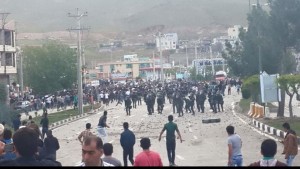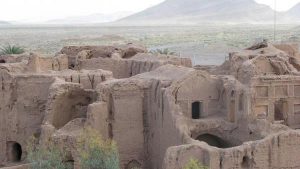NOTE
1. Bakunin’s remarks are given either in the translation used by G. P. Maximoff, or are merely summarized.
2. Marx’s notes are very condensed. Where I have added anything to make them more intelligible, the additions are placed within single square brackets.
3. The Marx notes re-translated from the Russian are placed within double square brackets – Note Smolny : for html layout reasons, these double brackets have been replaced by single one with a starting “R:”. Ex : [R: from-russian-text].
4. Where Marx makes a brief interjection within a Bakunin passage, it is placed on a new line, and the text by Bakunin then continues.
5. The letters in the margin indicate the corresponding German fragments, given at the end, and reconstructed in the way indicated.
6. A brief note on the more interesting of the few remarks by Marx scattered throughout the rest of his Russian summary is given at the end of the English translation.
Bakunin
Marx and Lassalle recommend to the workers the formation of a « People’s State », if not as their ultimate ideal, at least as their next chief aim. This state will only be « the proletariat raised to the position of a ruling class ». But once the proletariat is the ruling class, over whom will it rule ?
Marx
a. This means, that as long as the other classes, especially the capitalist class, still exist, as long as the proletariat is still struggling with it (because, with its [conquest of] governmental power its enemies and the old organization of society have not yet disappeared), it must use coercive means, hence governmental means ; it is still a class, and the economic conditions on which the class-struggle and the existence of classes rest, have not yet disappeared and must be removed by force, or transformed, their process of transformation [must be] speeded up by force.
Bakunin
There will be another proletariat, subject to this new domination, this new State. The peasant « rabble » which does not stand in great favour with the Marxists, finding themselves on a lower level of culture, probably will be ruled by the city and factory proletariat.
Marx
b. Where the peasants exists en masse as private owner of the soil, where he even forms a more or less considerable majority, as in all states of the west European continent ; where he has not – as in England – disappeared and been replaced by agricultural day-labourers, the following cases occur :
Either he prevents, causes to fail, every workers’ revolution, as he has done hitherto in France, or the proletariat (because the owning peasant does not belong to the proletariat, and there where he does belong to it by his position, he does not believe that he belongs to it), must take measures, as a government, through which the peasant finds his position directly improved, which thus win him for the revolution ; measures, however, which facilitate in nucleus the transition from private property in the soil to collective property, so that the peasant comes to its of his own accord, economically [1]. But it must not antagonize the peasant, by, for instance, proclaiming the abolition of the right of inheritance or the abolition of his property ; this is only possible where the capitalist tenant has ousted the peasant, and the real tiller of the soil is just as much a proletarian, a wage worker, as is the urban worker, [R: and hence has directly, and not only indirectly, the same interests as he. One has even less right to strengthen small peasant property by simply enlarging the plots by the transfer of the large estates to the peasants, as in Bakunin’s revolutionary campaign. ]
Bakunin
Or, considered from the national point of view, the Slavs, for instance, will assume, for precisely the same reasons, the same position of slavish subjection to the victorious German proletariat which the latter now holds with respect to its own bourgeoisie.
Marx
c. Schoolboy’s asininity ! A radical social revolution is tied to certain historical conditions of economic development ; these are its prerequisites. It is hence only possible where, with capitalist production, the industrial proletariat occupies at least a significant position among the mass of the people. And so that it might have any chance whatever of victory, it must at least be able to do as much immediately for the peasants, mutatis mutandis, as the French bourgeoisie did in its revolution for the then existing french peasants. What a lovely idea, that this task [2] includes domination, the suppression of rural labour !
But here the innermost thought of Mr. Bakunin comes to light. He does not understand a thing about social revolution, only the political phrases about it ; its economic conditions do not exist for him. Now since all hitherto existing economic forms, developed or undeveloped, include the servitude of the worker (be it in the form of the wage worker, peasant, etc.) he believes that in all of them a radical revolution is equally possible. But even more ! He wants that the social revolution, founded on the economic basis of capitalist production, should take place at the level of the Russian or Slav agricultural and pastoral people [R: that it shall not surpass this level, in spite of the fact that he sees that maritime navigation creates differences among brothers, but then only navigation at sea, since this difference is known to all politicians ! ] Will, not economic conditions, is the foundation of his social revolution.
Bakunin
If there is a State, there must necessarily be domination, and therefore slavery ; a State without slavery, overt or concealed, is unthinkable – and that is why we are enemies of the State.
What does it mean : « the proletariat raised into a ruling class ? »
Marx
[R: it means that the proletariat, instead of struggling in isolation against the economically privileged classes, has acquired sufficient power and organization in order to use generalized means of coercion in its struggle against them. But it can only use economic means which destroy its own characteristic of being a wage-earner and, hence, its class characteristic. Thus its domination ends with its total victory, since its class characteristic disappears ].
Bakunin
Will the proletariat as a whole be at the head of the government ?
Marx
[R: In a trade union, for example, does the whole union form its executive committee ? Will all division of labour cease in the factory, and will the various functions which flow from this division cease ? And in Bakunin’s construction, de bas en haut, will all go to the top ? In which case there wouldn’t be any bottom, would there ? Will all the members of the Commune simultaneously administer the common interests of the Region ? Then there is no longer any difference between Commune and Region. ]
Bakunin
There are about 40 millions Germans. Will all the forty million be members of the government ?
Marx
Certainly [3] ! [R: For the whole thing begins with the self-government of the Commune. ]
Bakunin
The whole people will govern and there will be no one to be governed.
Marx
[R: According to this principle, when a man rules [4] himself, he does not rule himself, since is he not only himself and no one else ? ]
Bakunin
It means that there will be no government, no State, but if there is a State in existence there will be people who are governed, and there will be slaves.
Marx
[R: This merely means : when class rule will have disappeared, there will no longer be any state in the present political sense of the word. ]
Bakunin
This dilemma is solved very simply in the Marxist theory. By a people’s government, they
Marx [R: that is, Bakunin ]
mean the governing of the people by means of a small number of representatives elected by the people.
Marx
d. Asinine ! This democratic verbiage, political drivel ! An election is a political form, in the smallest Russian commune and in the Artel. The character of the election does not depend on this name, but on the economic basis, the economic interrelations of the electors, and as soon as the functions have ceased to be political, then there exists : 1. no governmental function, 2. the distribution of general functions has become a business matter which does not result in any domination 4 ; 3. the election has none of its present political character.
Bakunin
Universal suffrage – the right of the whole people
Marx [R: a thing such as « the whole people ], in the present sense, is fantastic »
to elect its so-called representatives and rulers of the State – this is the last word of the Marxists as well of the democratic school. And this is a falsehood behind which lurks the despotism of a governing minority, a falsehood which is all the more dangerous in that it appears as the ostensible expression of a people’s will.
Marx
[R: Under collective property, the so-called will of the people disappears in order to make way for the real [5] will of the collective [6]. ]
Bakunin
Thus – rule of the great mass of the people by a small privileged minority. But, the marxists say
Marx [R: where ? ]
this minority will consist of workers. Yes, indeed, of ex-workers, who, once they become rulers or representatives of the people, cease to be workers.
Marx
No more than a manufacturer today ceases to be a capitalist when he becomes a member of the municipal council.
Bakunin
And from the heights of the State they begin to look down upon the toiling people. From that time on they represent not the people but themselves and their own claims to govern the people. Those who doubt this know precious little about human nature.
Marx
[R: If Mr. Bakunin were au courant, be it only with the position of a manager in a workers’ cooperative, he would send all his nightmares about authority to the devil. He should have asked himself what form can administrative functions assume on the basis of that workers’ state, if it pleases him to call it thus ? ]
Bakunin
But these elected representatives will be convinced Socialists, and learned Socialists at that. The words « learned Socialist »
Marx [R: has never been used ]
and « scientific Socialism »,
Marx [R: (used only in opposition to utopian socialism which ] e. tries to saddle the people with new phantasmagorias, instead of confining its science to the recognition of the social movement made by the people itself ; [R: see my work against Proudhon). ]
which are met with constantly in the works and speeches of the Lassalleans and Marxists, prove only that this would-be people’s State will be nothing else but despotic rule over the toiling masses by a new, numerically small aristocracy of genuine or sham scientists. The people lack learning and so they will be freed from the cares of government, will be wholly regimented into one common herd of governed people. Emancipation indeed !
The Marxists are aware of this (Marx !) contradiction, and realizing that government by scientists (Marx quelle rêverie !) (the most distressing, odious, and despicable type of government in the world) will be, notwithstanding its democratic form, a veritable dictatorship, – console themselves with the thought that that dictatorship will only be temporary and of brief duration.
Marx
f. Non, mon cher ! the class domination of the workers over the strata of the old world which struggle with them, must last as long as the economic basis of the existence of classes is not destroyed.
Bakunin
They say that the only care and aim of this government will be to educate and uplift the people
Marx [R: (Coffee House politician !) ]
economically and politically, to such an extent that no government will be necessary, and that the State, having lost its political character, that is, its character of rule and domination, will turn all by itself into an altogether free organization of economic interests and communes… If their State is going to be a genuine people’s State, why should it then dissolve itself – and if its rule is necessary for the real emancipation of the people, how dare they call it a people’s State ?
Marx
[R: Apart from the continued repetition about the “People’s State” which is Liebknecht’s hobby horse, an idiocy directed against the Communist Manifesto, etc., this only means : Since the proletariat, during the period of the struggle for the destruction of the old society still acts on the basis of the old society, and hence still gives to the movement political forms which more or less correspond to it, it has not yet reached its definite organization during this period of struggle. And it uses means for its liberation which become superfluous after its liberation. From this, Mr. Bakunin concludes that it would be better that the proletariat should do nothing at all, that it should await the day of general liquidation, the last judgement ! ]
Bakunin
Through our polemic
Marx [R: (which, of course, appeared before my book against Proudhon, and before the Communist Manifesto, and even before Saint-Simon) ]
against them
Marx [R: nice usteron proteron ! ]
we have forced them to realize that freedom or anarchy
Marx [R: (Mr. Bakunin has merely translated the Anarchism of Proudhon and Stirner into an absurd Tartar dialect) ]
that is, the free organization of workers from below upward
Marx [R: idiocy ! ]
is the ultimate aim of social development, and that every State, their own people’s State included, is a yoke, which means that it be gets despotism on the one hand and slavery on the other.
Note on the « scattered » remarks
The remarks translated above are concentrated in a few pages of the Marx notes. But, interspersed among the long Russian summary by Marx of Bakunin’s work, there are also a few scattered remarks, which do not seem worth reproducing in detail. They are mostly pejorative or purely philological. A few are of more general interest and may be summarized here :
In reply to Bakunin’s claim that one needs an ideal, and a firm belief in the justice of one’s cause for a revolution, Marx ironically remarks that this, together with poverty and despair constitutes a real recipe for revolution.
Marx attacks Bakunin for ignoring in his book the most powerful bourgeois nation – England ; for regarding the Renaissance merely as a religious movement ; for using the word « bourgeois » as applying both to the middle ages and to capitalism. Marx answers Bakunin’s claim that Holland, England, and later America, have created a new type of civilization, which, while bourgeois on the economic side, yet in its tendencies is an « anti-state » civilization, by remarking that this is very characteristic of Bakunin : a truly capitalist state is « anti-state » for him.
Finally, Marx attacks Bakunin’s levelling tendencies, and accuses him of wanting to drag down the whole of Europe to the level of a mouse-trap seller.
[1] i.e. attracted by economic incentives, or : for economic reasons.
[2] The word « Arbeit » is ambiguous here. An alternative translation of the sentence is : « What a lovely idea that the rule of Labour includes domination, the suppression of rural labour ! »
[3] « Certainly ! » – thus in the German text.
[4] govern, control, are alternatives.
[5] « effective » is also possible.
[6] « co-operative » is also possible.
This section’s articles
[SMOLNY…] MARX 02g : Marginal notes on Bakunin’s ” Statism and anarchy “
NOTE 1. Bakunin’s remarks are given either in the translation used by G. P. Maximoff, or are merely summarized. 2. Marx’s notes are very condensed. Where I have added anything to make them more …
http://www.collectif-smolny.org/article.php3?id_article=1386
آدرس و اسامی صفحات مرتبط با فدراسیون عصر آنارشیسم
Federation of Anarchism Era Social Media Pages
۱- آدرس تماس با ما
asranarshism@protonmail.com
info@asranarshism.com
۲- عصر آنارشیسم در اینستاگرام
۳- عصر آنارشیسم در تلگرام
۴- عصر آنارشیسم در توئیتر
۵ – فیسبوک عصر آنارشیسم
۶ – فیسبوک بلوک سیاه ایران
۷ – فیسبوک آنارشیستهای همراه روژاوا و باکور - Anarchists in solidarity with the Rojava
۸ – فیسبوک دفاع از زندانیان و اعدامیان غیر سیاسی
۹ – فیسبوک کارگران آنارشیست ایران
۱۰- فیسبوک کتابخانه آنارشیستی
۱۱ – فیسبوک آنارشیستهای همراه بلوچستان
۱۲ – فیسبوک هنرمندان آنارشیست
۱۳ – فیسبوک دانشجویان آنارشیست
۱۴ – فیسبوک شاهین شهر پلیتیک
۱۵ – فیسبوک آنتی فاشیست
۱۶- تلگرام آنارشیستهای اصفهان و شاهین شهر
۱۷ – اینستاگرام آنارشیستهای اصفهان و شاهین شهر
۱۸- تلگرام آنارشیستهای شیراز
۱۹ – تلگرام ” جوانان آنارشیست ”
۲۰ - تلگرام آنارشیستهای تهران
۲۱ – اینستاگرام جوانان آنارشیست
۲۲ – گروه تلگرام اتحادیه آنارشیستهای افغانستان و ایران
۲۳ – توییتر اتحادیه آنارشیستهای افغانستان و ایران - The Anarchists Union of Afghanistan and Iran
۲۴ – فیسبوک اتحادیه آنارشیستهای افغانستان و ایران
۲۵ – اینستاگرام اتحادیه آنارشیستهای افغانستان و ایران
۲۶ – کانال تلگرام خودسازماندهی مطالب گروه اتحاديه آنارشیستهای افغانستان و ايران
۲۷ – گروه تلگرام خودساماندهی مطالب گروه اتحادیه آنارشیستهای افغانستان و ایران
۲۸– اینستاگرام آنارشیستهای بوکان - ئانارکیستە کانی بۆکان
۲۹- کانال تلگرام کتابخانه شورشی
۳۰- کانال تلگرام ریتم آنارشی
۳۱- تلگرام آنارشیستهای اراک
۳۲- تلگرام قیام مردمی
۳۳- ماستودون عصرآنارشیسم
۳۴- فیسبوک آنارشیستهای مزار شریف
۳۵- فیسبوک آنارشیستهای کابل









